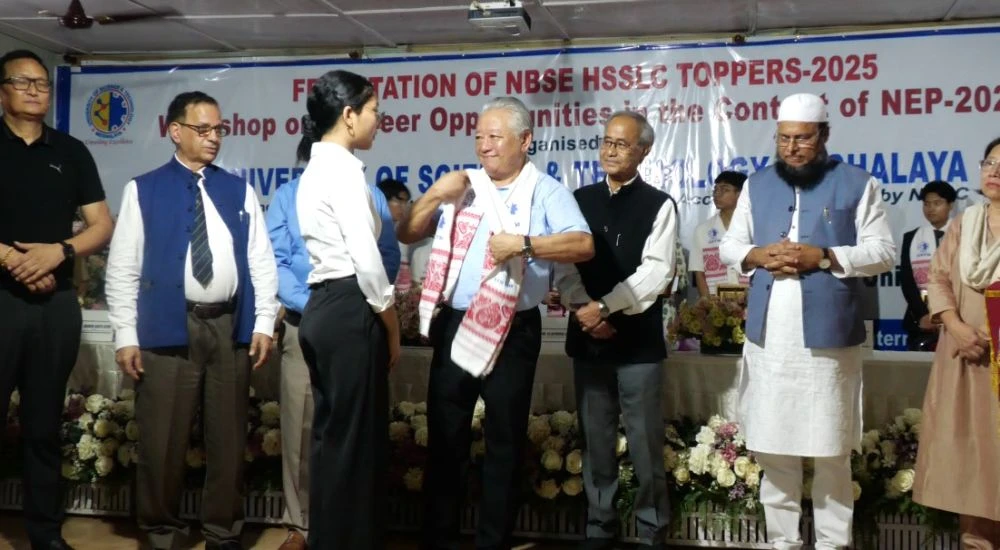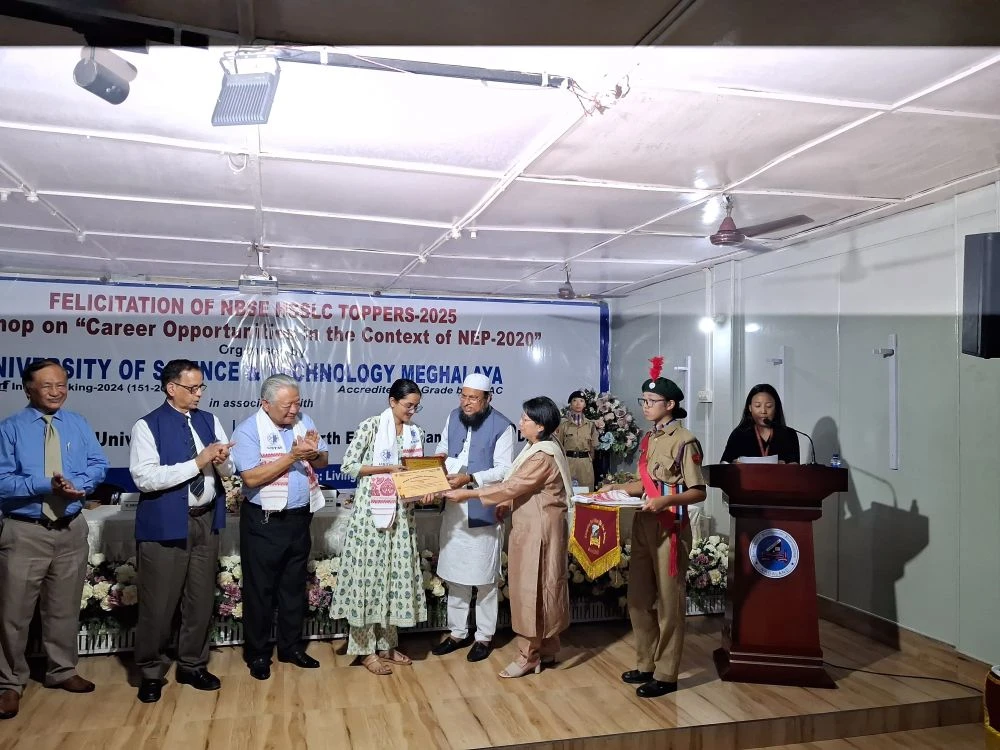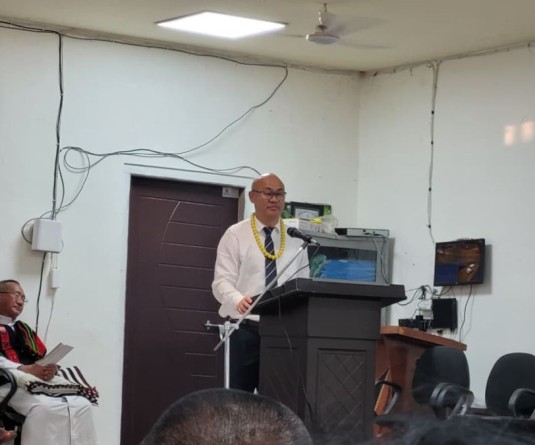Former Chief Secretary Alemtemshi Jamir speaking on July 4.
.jpg)
Morung Express News
Dimapur | July 4
According to Alemtemshi Jamir, the National Education Policy (NEP) 2020 marks a fundamental shift in India’s mode of imparting education. The former Chief Secretary of the Nagaland state government said that the NEP is a departure from the “colonial system” of education, which he held, was focused on producing “white-collar” government employees.
“And this is basically a structural change in the educational system of India, a long march away from the colonial system, looking for ‘white-collared’ people, who would sit in the office,” he said speaking at a ‘Career opportunities in the context of NEP 2020’ workshop conducted at Livingstone Foundation International School, Dimapur, on July 4. The workshop was organised by the University of Science and Technology Meghalaya (USTM) in association with the Nagaland University and North East Christian University.
The colonial approach to education, then instilled in the people, has had “Naga boys and girls” setting government job as their career goal, he added.

He said that as opposed to the inherited colonial system, the NEP focuses on skill development, and creating an environment conducive to not only self-employment but also creating jobs— from job-seeking to job-creation. He added that it is based on the principle of accessing equitable and quality education for all.
In an era marked by rapid technological advancement, he said that the NEP is crucial to preparing India’s youth, while adding that the NEP should be redefined to suit Nagaland’s conditions and needs.
He challenged the notion that Nagas are not wired for science and mathematics. On the contrary, he said that science and technology was an intrinsic part of the Naga agricultural practices. According to him, the Nagas of old used scientific methods of farming, could read the weather and changing seasons, and had knowledge of water management for terraced cultivation.

“They could count the threads of the woof and the warp to bring out a design… And this was done by people who were illiterate. If you look at the pani kheti (terraced farming), people are amazed by the engineering that was involved in the water management,” he said.
He added, “That is how scientifically minded our forefathers have been. So, science and technology is not a foreign thing being imposed on you.”
He cited the challenges facing Nagaland in relation to lack of investment opportunities, and a workforce not yet prepared for large-scale industrial operations. While Nagaland’s future lies in its land and agriculture, he lamented that the state has large swathes of land that are not being utilized owing to the state’s archaic land-holding system.
According to him, it is up to the youngsters, who can make use of the new education policy to help transform Nagaland into a thriving economy.
HSSLC toppers of the Nagaland Board of School Education examination 2025 were also felicitated with certificate and cash awards sponsored by the USTM. A media handout further informed that the USTM has announced scholarships for 50 meritorious and economically disadvantaged students from Nagaland each year for studying at the university. The USTM will also adopt 5 “deserving students from Nagaland each year to prepare them for the UPSC examination, offering them free coaching, mentorship and complete academic support.”
USTM Chancellor Mahbubul Hoque and Vice Chancellor GD Sharma were present.






